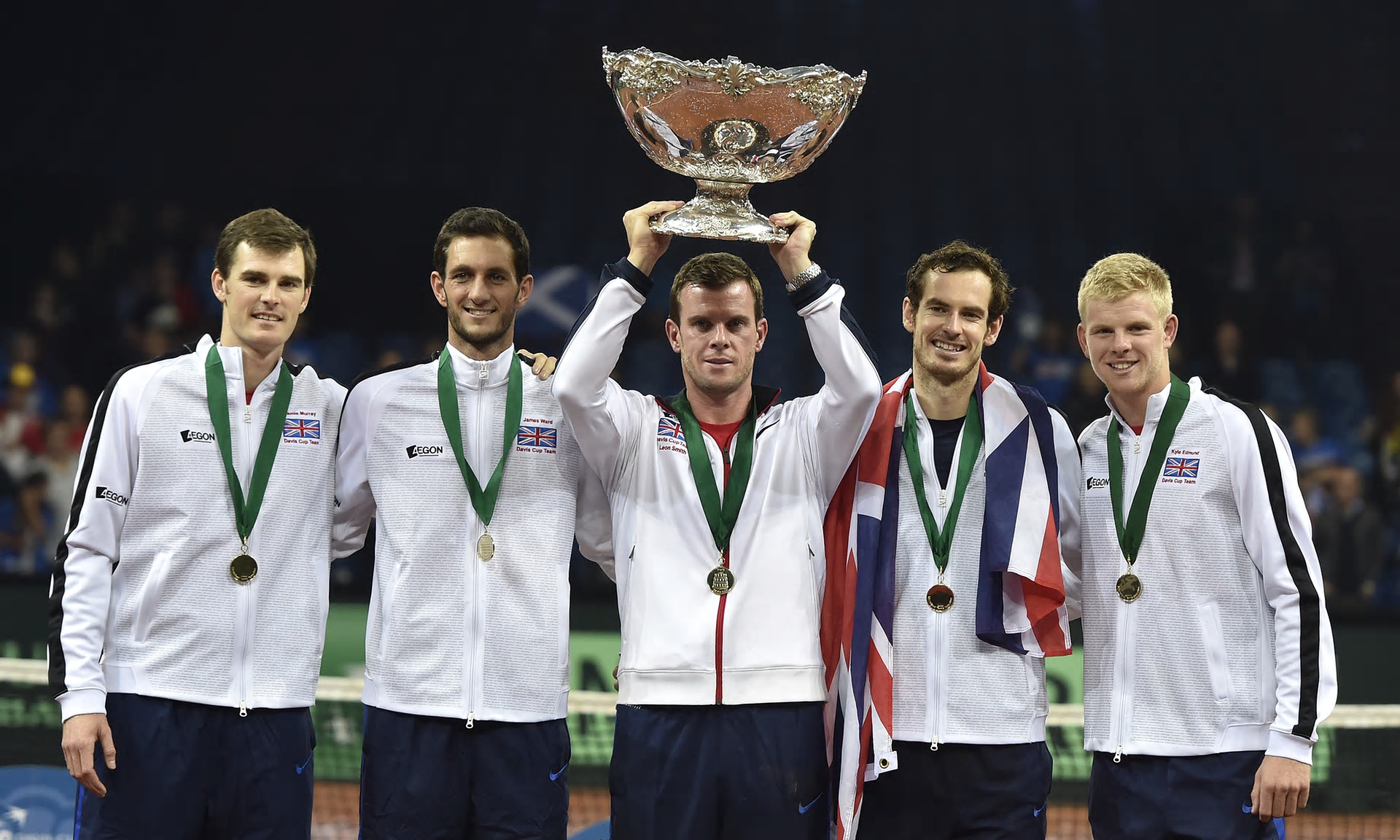Jamie Livingston discusses ‘Achieving Elite Team Performance’, following our latest Leadership Conversation with winning Davis Cup Captain, and Team GB Olympic Tennis Coach, Leon Smith.
In recent times, media and current players have been falling over each other to praise Leon Smith’s success and his ability to bring out the best in his players – and rightly so – whilst perhaps not the 5000 to 1 shot that Leicester City pulled off – the Davis Cup win will go down in sporting history as a staggering feat of underdog success.
But this high praise has not always been forthcoming.
On hearing of Smith’s appointment as Davis Cup Captain back in 2010, one well-known commentator allegedly stated that if Leon was the right man for the job, then said commentator was “a turkey”.
It was with a grin during his address, that Leon pointed out that the long journey to winning the Davis cup actually started with beating Turkey in his first game in charge. One hopes the amusing irony will not be lost on “the turkey” that made the statement.
Beyond from the romanticism of the against the odds story, are there any lessons for those of us who put on a suit rather than a T-shirt to go to work and who’s tools are laptops rather than rackets?
When you get beneath the headlines, the answer is an emphatic yes.
To set the scene, a keen tennis player in his early days, Leon was more attracted to developing his overhead smash than taking the short walk to Hutchesons’ Grammar where he went to school. This dedication to his sport meant he progressed quickly into a national-level player but never broke through to become one of the elite. As a result of this and his love for tennis, he decided to take up coaching where after a short period cutting his teeth he was able to work with a young Andy Murray. Through these experiences and coaching at various clubs the length and breadth of Scotland, Leon was named the LTA’s national under-16s men’s coach in 2005 and the under-18s’ coach in 2008 later being appointed Head of Player Development in Men’s Tennis. He was appointed Head of Men’s Tennis simultaneously to his appointment as Davis Cup captain in April 2010.
The daunting task of becoming Davis Cup captain focused the mind and Leon quickly established a strategy to prepare the team for the journey back to the World Group. This clear vision and purpose became the focus for the early years of his tenure.
From the beginning, Leon knew he couldn’t draw on previous experience of playing in Grand Slams as former captains like David Lloyd could and had. He had to find a different angle and for him, that angle became getting the detail right. Meticulous preparation and analysis beyond anything that had gone before was what earned him the respect of the locker room and set a foundation for what was to come.
Creating and harnessing a team spirit, where all players and staff shared the journey, was another ingredient for success. Contrary to what some may assume, there are no prima donna’s in the UK Davis Cup team – egos are checked in at the door. Every single contribution, from the amazing performances of the players on the court through to the engagement and involvement of the “kit man”, are valued and recognized equally. This process of empowerment and involvement at every level built what Leon believed to be a key point of difference – an incredible team ethos in what is normally a sport that focusses on the individual.
Vision, cutting edge analysis and team spirit in place, Leon needed to find a way to get the players believing they could do something special. Weaving their own “giant killing” stories through videos of higher profile sporting victories started to plant the seed, momentum and a notable win against Russia without a certain Mr Murray playing, provided the evidence they needed to really believe they could do it.
Heroic performances to beat Belgium were still required, but the foundations for success had been built over the years before – and the lessons are clear for the taking.
Personal dedication, setting clear vision and purpose, playing to your own strengths, building a team where everyone is important and getting them to believe in what others think is impossible led to a team ranked 44th in the world becoming number 1 and winning the Davis Cup for the first time in 79 years.
For those of us looking to build teams that can achieve something special, there is much to learn from Mr Smith’s approach.
Jamie Livingston is a Founding Director of Livingston James, an Executive Search and leadership advisory business that helps organisations achieve their potential by matching expertise to business needs to create elite teams that deliver exception performance.
To find out more about our Leadership Conversations in 2016, please contact [email protected]






